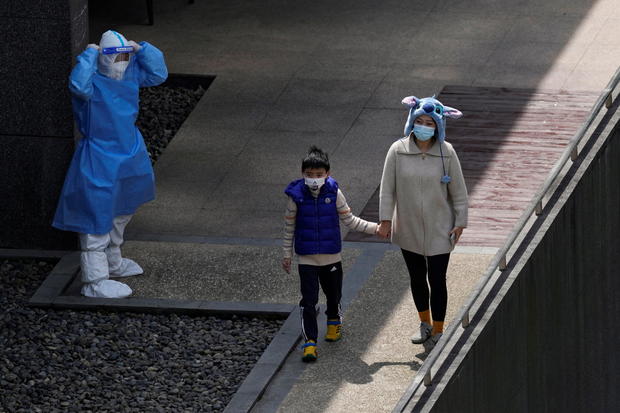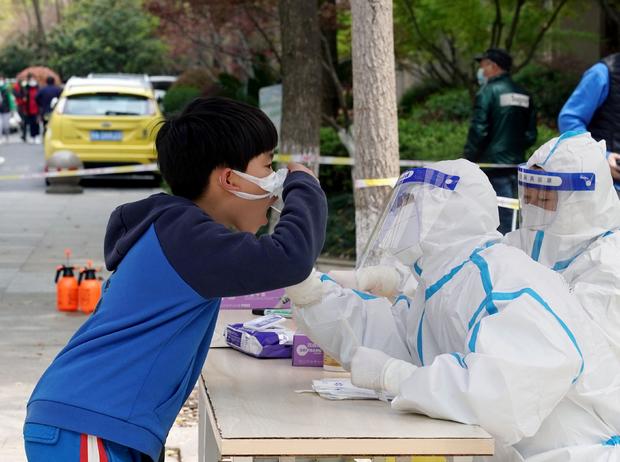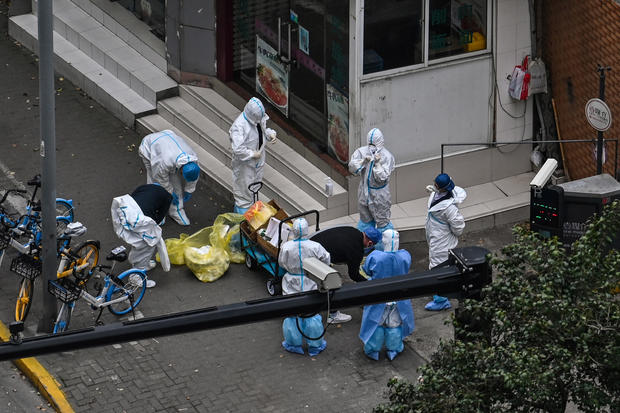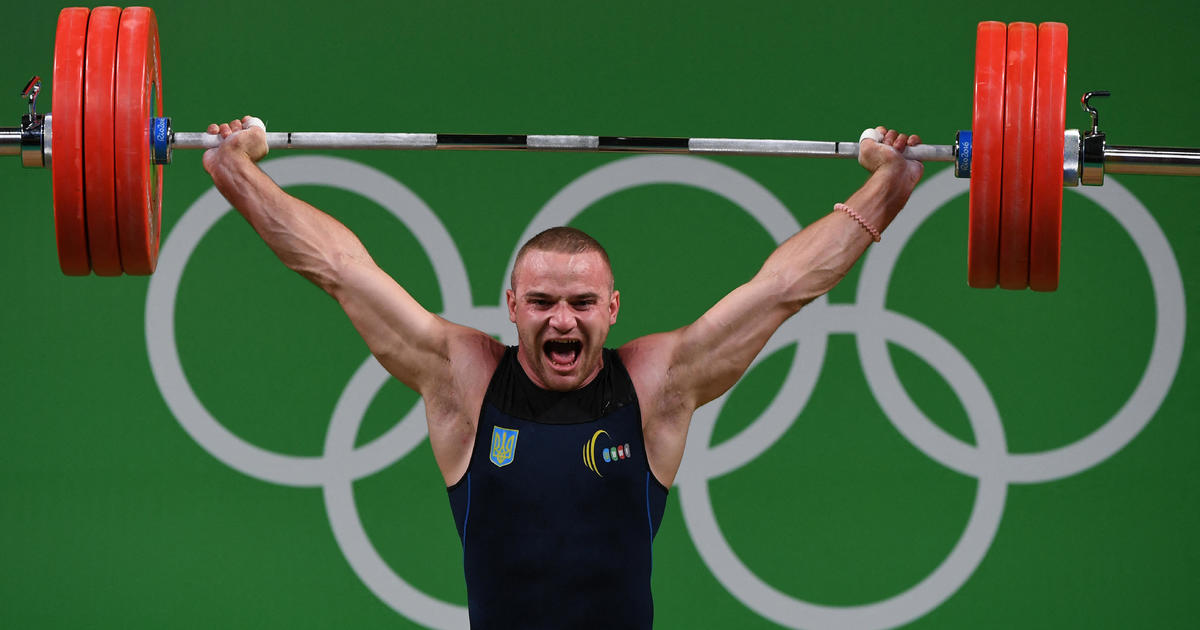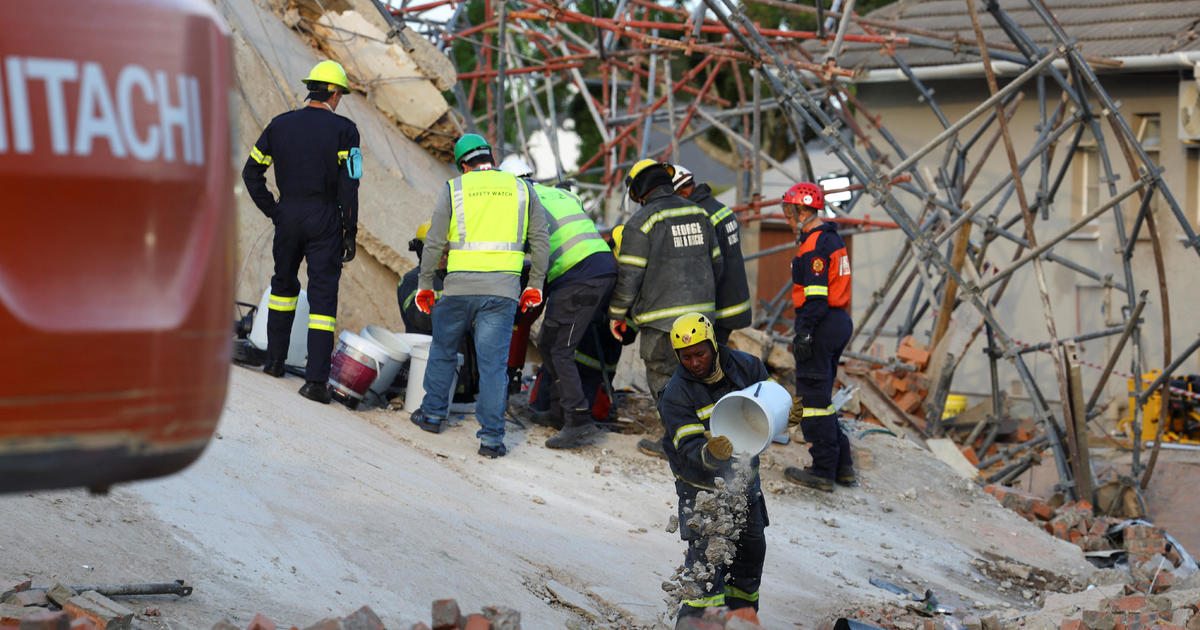Bowing to public pressure, China changes Shanghai COVID lockdown rules to let parents stay with infected kids
Authorities in China rarely bow to public pressure, but an outcry over COVID-positive kids being separated from their parents in the locked-down megacity of Shanghai appears to have brought an unusual change in policy. An official in Shanghai announced Wednesday that parents would be allowed to remain with their kids in mass-quarantine centers even if the parents themselves were not infected with the coronavirus.
The change in Shanghai's draconian "zero-COVID" policies came as China's largest city struggled to contain the spread of the highly infectious new BA.2 omicron subvariant of the virus. Shanghai reported another record daily number of new cases on Wednesday, with 17,077 infections recorded over the previous 24 hours.
City health commission inspector Wu Ganyu said Wednesday that parents who sign an agreement acknowledging they "fully comprehend the health risks" would be allowed to accompany their children at monitoring facilities, according to The Associated Press. The parents must wear masks, eat separately from their kids and avoid sharing personal items, Wu told reporters.
News that COVID-positive kids were being separated from their parents in Shanghai had sparked an atypically vocal wave of protests on Chinese social media, which was fueled by photos of young children isolated in cots without their parents around.
The lockdown of Shanghai, China's biggest city, was extended this week to cover its entire population of more than 25 million as the global trade hub battles the worst COVID-19 outbreak since the pandemic began in China more than two years ago.
While most cases in the city are asymptomatic and no deaths have been blamed on the latest wave, the strict measures have strained residents' patience and overwhelmed authorities' ability to feed and care for Shanghai's stranded inhabitants.
What was initially intended to be a relatively short shutdown starting a little over a week ago, staggered over two stages in two halves of the city, is now well into its second week and covers the entire population, paralyzing the well-manicured, hyper-modern metropolis.
China's government has sent almost 40,000 personnel to Shanghai from other regions to help enforce the lockdown and conduct the mandatory COVID testing of all residents. It's all part of the country's biggest coronavirus response to date.
While the infection rates in Shanghai and China more broadly are low by international standards, China has doubled down on its policy of stamping out every single case under its "dynamic zero-COVID" strategy.
Against less transmissible variants, the strategy seemed to work well and it was broadly supported by the public. But with Omicron fueling the current wave, China's uncompromising policy of locking down cities and barricading citizens in their homes in a bid to track and eliminate every trace of the virus may finally have met its match.
Rumors have swirled on Chinese social media about some residents refusing to be tested, wary of being warehoused in huge quarantine centers with little privacy. But the policy of separating children, including babies, from their parents when only one or the other tested positive sparked the most criticism.
U.K.-based health analysis firm Airfinity, in a report titled "China risks over a million deaths if Omicron spreads," said that because of China's low acquired immunity from past infections and its less-effective vaccines, the entire country risks sharing the fate of Hong Kong, which sustained the world's highest COVID death rate per capita.
Other analysts argue, however, that the overwhelmingly asymptomatic infections show China's domestic vaccines are holding up.
China's hardline coronavirus policy comes at substantial cost. An economist at the Chinese University of Hong Kong estimated that the shutdown of the critical financial and trade center of Shanghai was costing at least $46 billion a month, or about 3% of China's GDP.
Chinese authorities have continued to voice unwavering support for the zero-COVID strategy. This week, China's official state news agency published an "explainer" saying the policy had been effective and that, "in the days to come, it will continue to guide the country's epidemic control and prevention efforts."
Politics is believed to be at least partly driving China's hardline stance. With a major Communist Party congress slated for this fall, during which President Xi Jinping will seek a controversial third term, any quick easing of the restrictions appeared unlikely.
